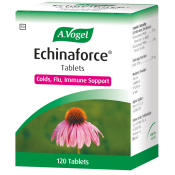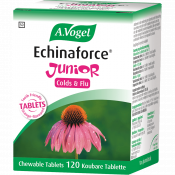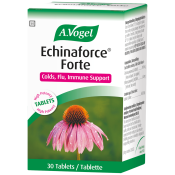Six signs of a strong immune system include:
- You are following a healthy diet
- You have good gut health
- You like to drink water
- You recover well from colds and flu
- You sleep well
- You’re up for a laugh!
Here we explore this checklist in more detail and offer some tips if you feel your immune system needs a bit of a boost.
1. You are following a healthy diet
If you’re consistently eating well, then you can almost guarantee your immune system is reaping the benefits. However, what constitutes as healthy? Unfortunately, there are a number of different ‘versions’ of healthy out there, some that perhaps don’t always meet a nutritionist’s seal of approval!
When it comes to a diet for supporting the immune system, some tick boxes are as follows:
- Ensure you are eating the rainbow! Lots of fresh fruit and vegetables including lots of leafy greens, broccoli, bell peppers, sweet potatoes, carrots, citrus fruit and berries. These options are particularly rich in both vitamins A & C, which your immune system will thank you for.
- Next, vitamin D is important too. This nutrient is perhaps less readily available in foods so you really need to be eating a varied diet including oily fish, eggs and mushrooms, to help hit the mark and ensure you benefit from vitamin D’s protective, immune-modulating properties.1
- Limit your consumption of pro-inflammatory food options including high amounts of sugar, omega-6 dense vegetable oils, caffeine or alcohol.
Need a helping hand?
If you’re keen to improve your diet in the right ways, but can’t face going extreme, then these tips are perfect for helping you to make some positive changes:
- Try to work a couple of different fresh fruit or vegetable ingredients into each meal, which means your total count will gradually build up throughout the course of the day. Plus, no food waste allowed! If there are some lonely looking veg in your fridge towards the end of the week, ensure you experiment and work those into your next meal.
- Getting sufficient vitamin D through your diet can be challenging so to ensure you’re getting enough to support your immunity, try taking a supplement. 10ug or 400iu daily is more than enough.
- The best way to ensure you’re eating well is to cook from scratch. This way you don’t need to worry about too many hidden ingredients, including sugar, bad fats or additives, which could drive inflammatory processes in the body. So, cut down on packets and ready-made options, and try cooking your own versions of some of your favourite meals.
2. You have good gut heath!
Did you know that 70-80% of your immune system is believed to reside in your gut? Therefore, it makes sense that a healthy digestive system is indicative of healthy immune functions. Crucially, research has shown that a wider spectrum of good gut bacteria is a sure sign of healthier immune responses. 2
Need a helping hand?
So, how can you tell if you have a wide range of good gut bacteria? The key is eating variety. As a rule of thumb, you should aim to eat at least 30 different fresh foods per week, and then add a whole new set of foods on your next week’s shopping list!
Some fresh foods that act as prebiotics include bananas, chicory, apples, artichokes, leeks and asparagus; all of which will help to keep your gut happy; whilst good quality fermented foods such as sauerkraut should be added sparingly too.
3. You like to drink water
Could drinking water regularly be linked to strong immunity? Now, although this idea isn’t fail-safe, here are a few reasons why drinking between 1.5-2l of water daily could actually help put you in good stead for fighting off bugs in the near future:
- Keeping properly hydrated helps encourage good circulation. Good circulation and healthy lymphatic drainage ensure that our immune cells can get where they need to be, and fast, plus, it helps to make sure that any pathogens are dealt with appropriately.3
- Good circulation can help support healthy healing processes. Slow healing wounds could be a sign of a compromised immune system but this can also be linked to poor circulation. Drinking plenty will help support both areas.
- Water keeps your skin healthy too – hydration from within. Your skin is your biggest organ and one of the first barriers bugs often come up against. You need to keep properly hydrated in order to help keep your skin suitably healthy; any breaks or compromises in the structure of your skin could give opportunist bugs an easy access point!
Really interestingly, your skin reacting to certain stimuli, for example, insect bites, is actually one of many sure signs that your immune system is working well. However, skin conditions such as eczema could indicate that your immune system is instead over-active, and you may need some help to rebalance.
Need a helping hand?
When it comes to water intake, aim for a gradual intake. Don’t guzzle too much around meal times or at the end of the day if you’ve forgotten, but try to keep a favourite glass or bottle more visible throughout the course of the day so you can be reminded to keep sipping. Remember too, that teas and coffees don’t count!
4. You recover well from colds and flu
Signs of a strong immune system can include eating a varied diet, drinking enough water and sleeping well. Also, how well you recover after being ill is another good indicator of how well your immune system is working.
Whilst your immune system is designed to help prevent the invasion of bugs, every now and again one might make its way in and you’ll succumb to the symptoms of an unwelcome cold or flu infection. This is quite common and most of us should start feeling better after a few days.
If instead your symptoms are lasting a lot longer, say, over a week or two, then that may suggest your immune system is struggling to get over it.
Need a helping hand?
If you’re frequently ill, or struggle to get over infections once you’re ill, then it’s possible that your immune system could need some support.
A herbal remedy such as Echinaforce may be a useful addition to your regime.
Echinaforce is clinically proven to help prevent and treat colds, flu and their complications. Used daily as a preventative it supports the immune system by increasing your resistance to infection. If used to treat a cold, flu or respiratory tract infeciton, Echinaforce helps reduce the severity and duration of symptoms, helping you to get better quicker.
5. You sleep well
Are you asleep within minutes of your head hitting the pillow? Sleeping well is arguably one of the best ways to help improve your immune functions and overall health. Sleeping well, plus at the right times (this means going to bed at a reasonable hour every night) can have a strong regulatory influence over your immune system.4 This down-time allows your immune system to repair and recuperate, whilst there are less demands elsewhere around the body.
Conversely, sleeping soundly can also be a good indicator that things are working as they should. Whilst the immune system is operating during the night, there is the release of certain immune cells called cytokines. Some of these cytokines are thought to be ‘sleep promoting’ and can actually help to encourage more regular sleeping patterns.5
Need a helping hand?
If you are worried that poor sleep could be hindering your health, then we’re here to help. Keeping a notepad by your bed to help empty your mind of thoughts before retiring for the night is a favourite tip of mine or, if you aren’t on any sleep medications, a herbal helper such as Dormeasan could also be an option.
Dormeasan contains a combination of two herbal ingredients, Valerian and Hops, which, when taken 30 minutes before bed, can help support sounder sleep.
6. You’re up for a laugh
Did you know that your mood could also be having an influence on your immune functions? Being lonely, for one, makes us less likely to respond well to stress, which can heighten inflammatory processes and negatively impact the immune system.6
In contrast to this, laughter may be decidedly helpful. Laughing has been shown in research to have positive, immune-enhancing effects, partly down to the stress-relieving capabilities of having fun and a good laugh – enjoy!7,8
Need a helping hand?
Adopting a more positive mindset, watching funny cat videos or taking some time out in every day to watch, read or listen to something light-hearted, and seeing the funny side of life with family and friends could be a useful in keeping those laughter muscles well exercised, lift your mood and support your health.
References
- https://www.ncbi.nlm.nih.gov/pmc/articles/PMC3166406/
- https://www.ncbi.nlm.nih.gov/pmc/articles/PMC3337124/
- https://link.springer.com/article/10.1007/s00428-016-1945-6
- https://www.ncbi.nlm.nih.gov/pmc/articles/PMC3256323/
- https://www.ncbi.nlm.nih.gov/pmc/articles/PMC5768894/
- https://academic.oup.com/abm/article-abstract/53/6/541/5071789
- https://www.ncbi.nlm.nih.gov/pmc/articles/PMC2686627/
- https://pubmed.ncbi.nlm.nih.gov/12652882/




